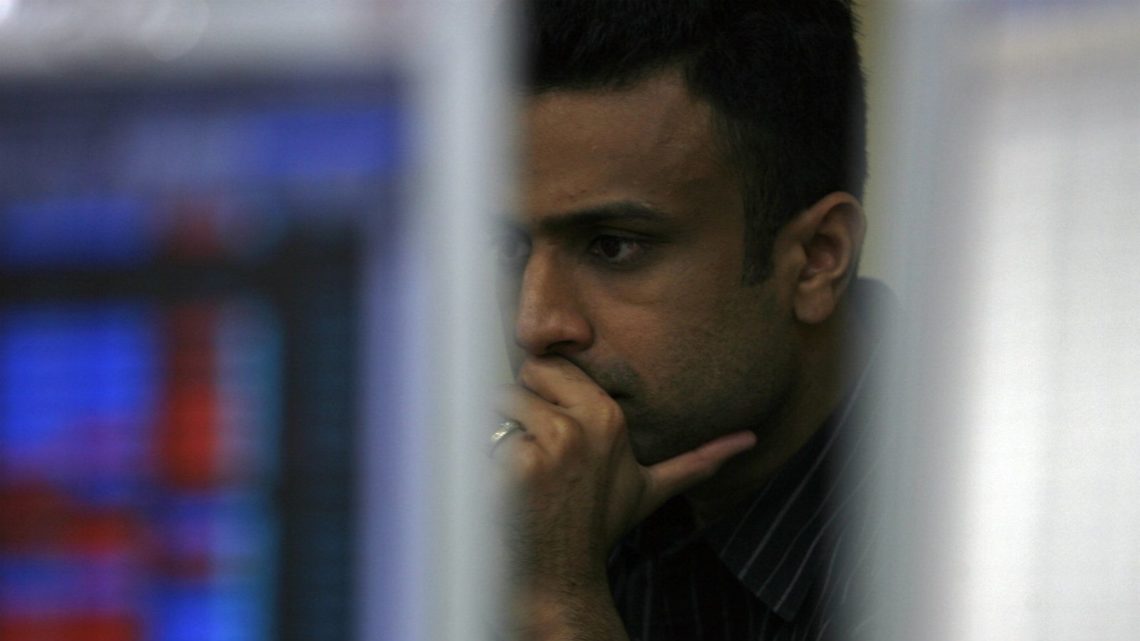It’s tough to keep up with technology. And India’s finance sector knows it too well.
Blockchain technology, based on concepts that underpin cryptocurrencies like bitcoin, is fast gaining pace in Asia’s third-largest economy but business executives still aren’t sure if they understand it. In 2016, some 32 blockchain firms were founded in India, according to audit and consultancy firm PwC. In the years before 2016, just 23 were founded, PwC added in its fintech report released on April 21. Despite this, only 17%, or seven, of the 45 Indian financial institutions and executives that PwC surveyed said they were “very or extremely familiar with it (blockchain technology.)”
Simply put, a blockchain is a digital ledger which records transactions. Each cryptocurrency, like bitcoin for instance, has its own blockchain. But it can be used beyond bitcoins. Banks and financial institutions the world over are trying to incorporate blockchain technology in daily operations. During a transfer of funds, “…blockchain allows consumers and suppliers to connect directly, removing the need for a third party,” the World Economic Forum explains. And since the technology can transfer value while cutting out the middle-men, startups and banks are trying to use it for a range of operations like cross-border remittances, for instance.
Here’s an explanation of how blockchain technology works by Quartz writer Joon Ian Wong:
A blockchain is a digital registry that can’t be tampered with. It provides a mechanism for various parties to agree on a set of facts. It prevents those parties from making false statements, since everyone else can check the facts; it also prevents statements from being changed after they’ve been recorded, since all parties are alerted to these changes. With bitcoin, for instance, the blockchain acts as a ledger of every transaction, thus, providing proof of who owns how many bitcoins.
Bitcoins, though, use a public blockchain technology which anyone can access to transact. Banks, on the other hand, are creating private blockchain technologies which gives network access to a limited number of parties involved in the transactions.
Blockchain in India
In India, while 56% of the companies surveyed by PwC said that blockchain is a part of their innovation strategy, not many have actually implemented it. The most common uses of this technology in the country, according to PwC’s survey, are in fund transfers, digital identity, and payments infrastructure.
Banks in India have begun using blockchain for transactions but it is still sporadic. ICICI Bank, YES Bank, Kotak Mahindra Bank, and Axis Bank have used it for vendor financing and international trade finance. Typically the lenders work with external firms and startups which write a smart contract—or software code—to implement the technology as per the use-case. The technology eliminates multiple processes which are time-consuming and costly.
“The process is still underway but as the understanding of the technology increases, blockchain will enter the mainstream and be adopted on a greater scale,” the PwC report said. But there have been doubts whether the technology will start a revolution in global finance, because not many banks and financial institutions have committed much resources towards the technology despite talking about it for years.
Meanwhile, the Reserve Bank of India (RBI) has signalled a favourable view saying blockchain will help the country’s banking sector. The RBI’s research arm, the Institute for Development and Research in Banking Technology (IDRBT), in a January 2017 research report (pdf), said it can bring cost savings, efficiency, and transparency to the banking industry.
Nevertheless, it is imperative for the Indian industry to first understand blockchain.







